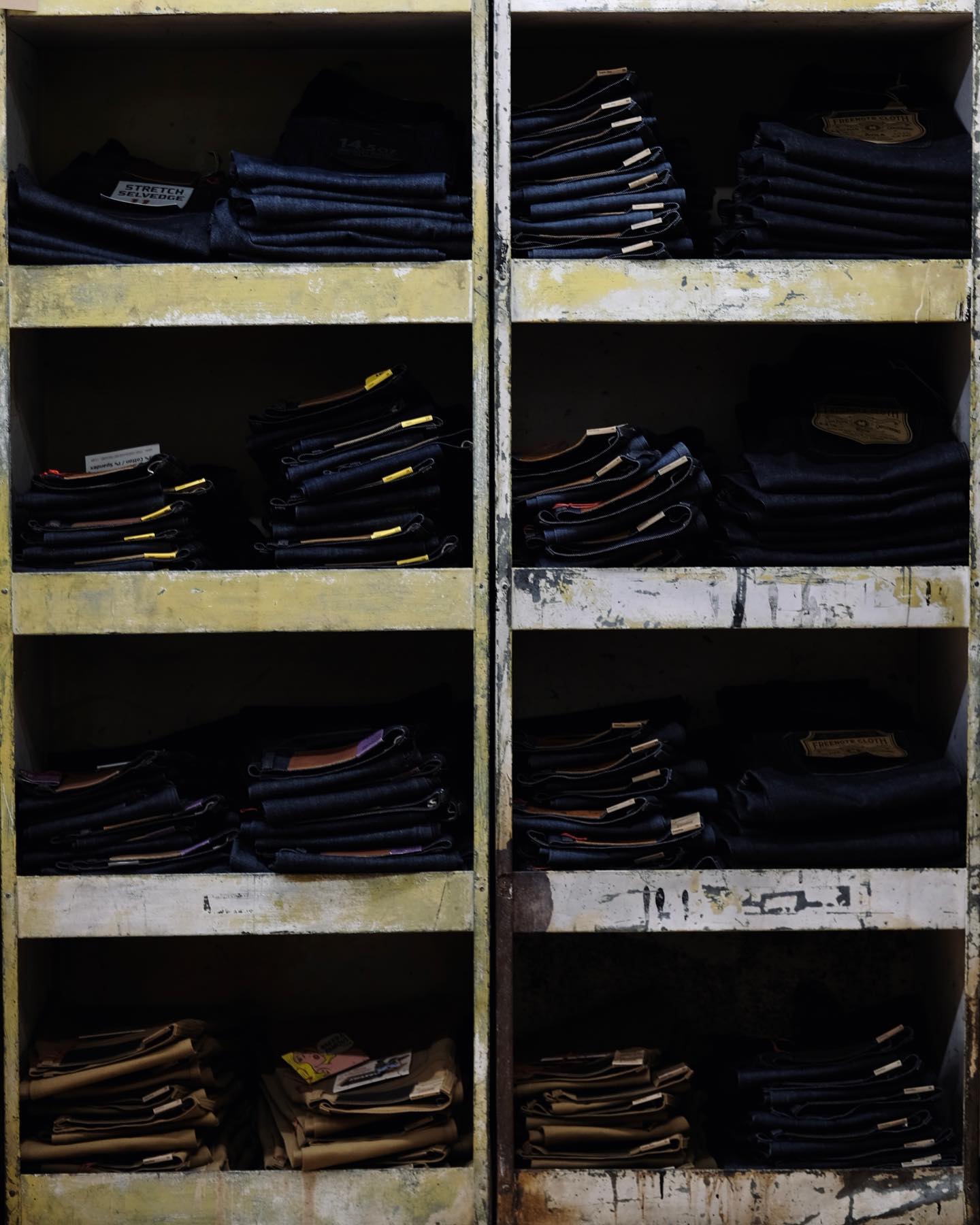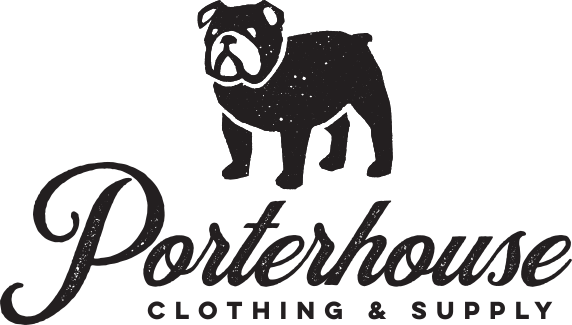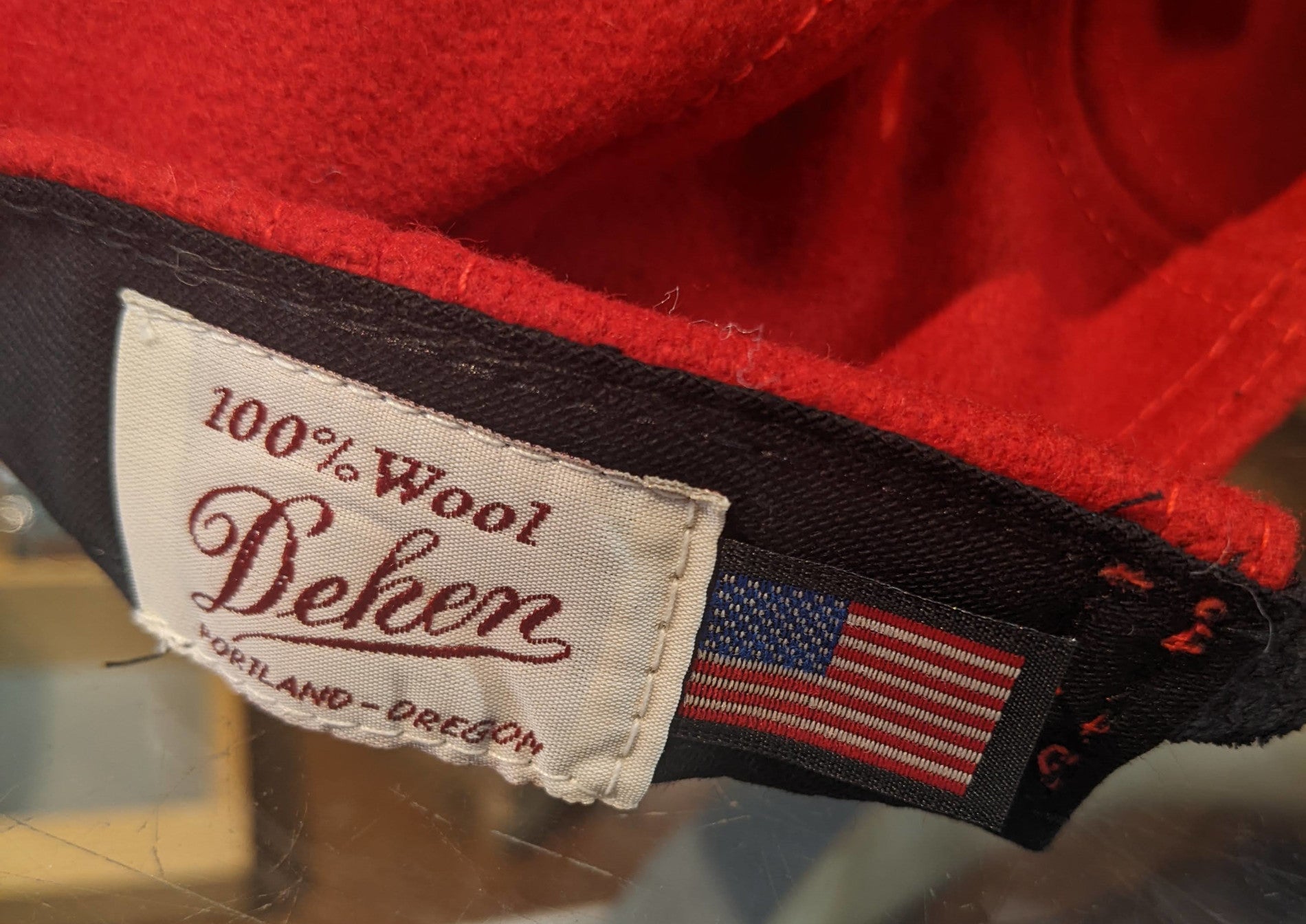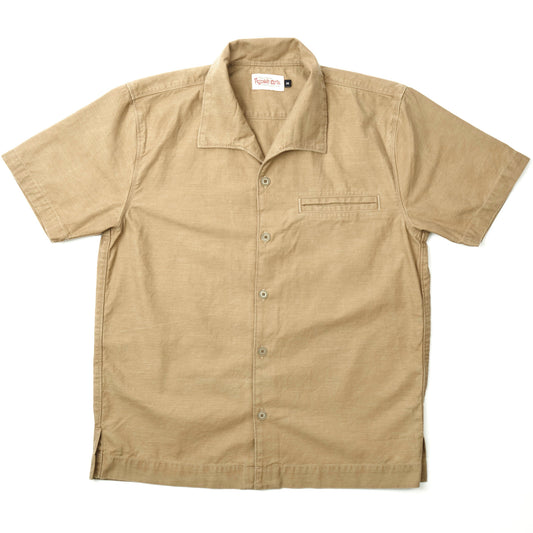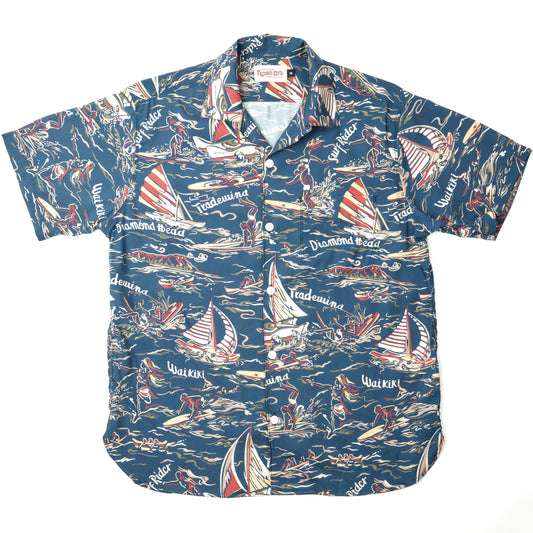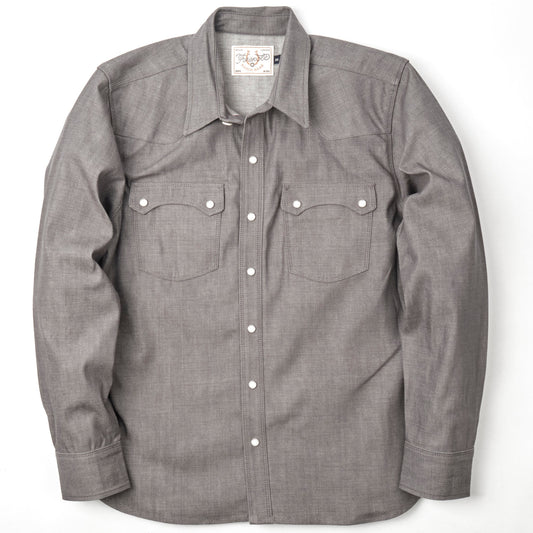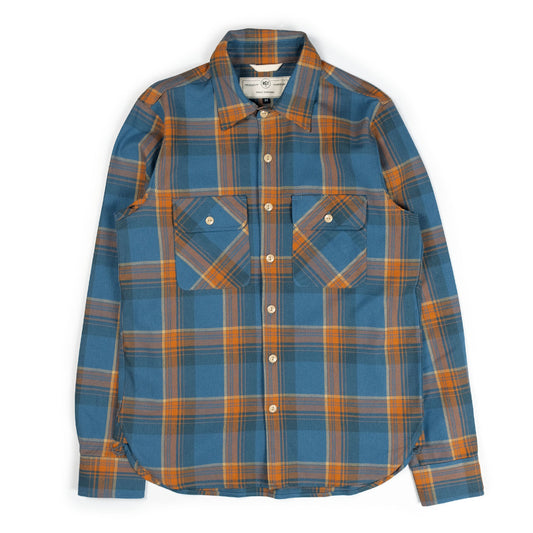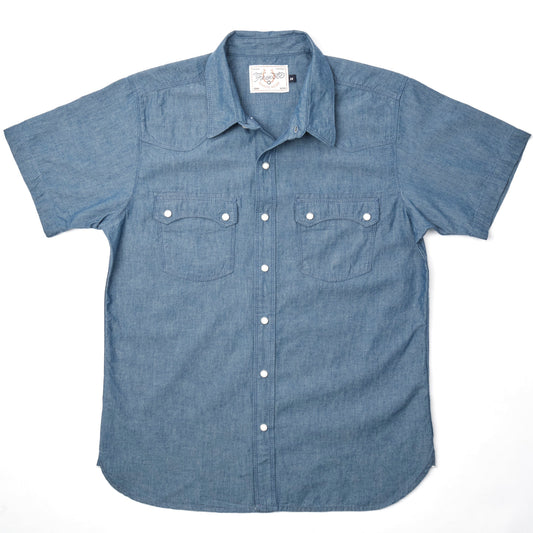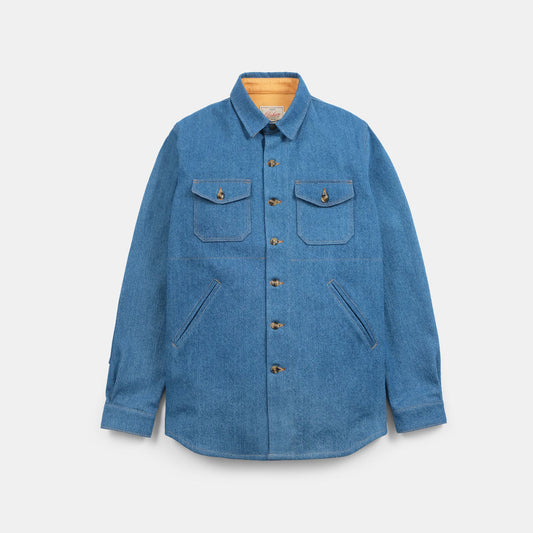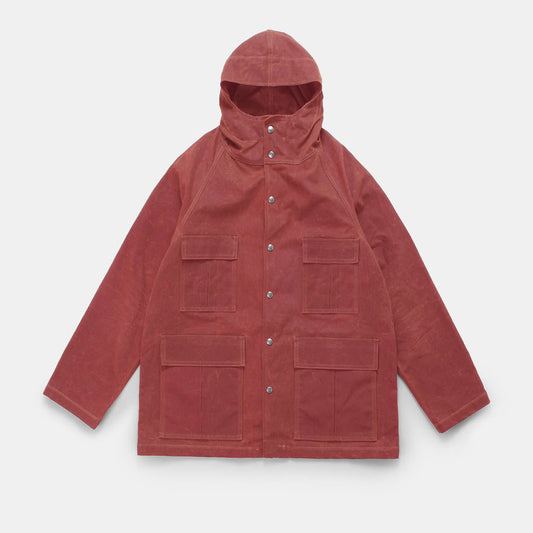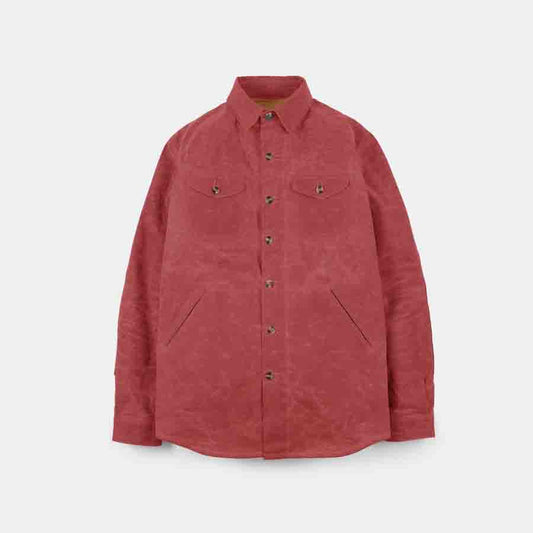Made in the USA
The world of fashion is full of sweatshops, convoluted supply chains and straight-up slave labor. We're not really about all that. So here at Porterhouse, we keep an eye out for excellent brands made in the USA. While not everything on our shelves is produced state-side, and while there are varying interpretations of what "made" is, our customers seem to be happy with the results.
Why Made in the USA?
If you grew up in the United States, you probably got indoctrinated with the idea that stuff made in the US is simply better than stuff made overseas. There are plenty of exceptions to that, so for us, it's about more than quality.
History
There's something intrinsically appealing about buying something that's been made in the same place for decades. These brands are drawing on a long history of patterns and knowledge to develop their latest products. Brands like Dehen, Gitman, and Darn Tough have been doing this for a minute.
Keeping Your Dollar Local
When you buy American, you're keeping your money closer to home. Your dollars, and any associated taxes down the chain, stay stateside, supporting American jobs, roads and infrastructure, all that good stuff.
Small-Batch Makers
Clothing manufacturing in the United States hasn't been a particularly booming business for a long time. Textile factories have been doing a lot more closing than opening.
But we've seen a resurgence in American-made textiles and clothing, which is pretty amazing. These manufacturers are often pretty small, with their Instagram accounts featuring live shots of the cutting room floor. Brands like Freenote, Rogue Territory and Railcar are bringing American-made clothing back into style.
Labor Laws
Pretty straightforward. The United States has federal labor laws that ensure folks are paid properly, working regular hours, and taking part in a social safety net that will help support them through retirement.
Why are clothes made in the USA more expensive?
Clothing made in the US is more expensive than clothing made elsewhere. That's just a fact.
Labor Laws
Slave labor is cheap. US labor is not.
Vertical Integration
A lot of USA brands are using textiles from third-party textile manufacturers to make their clothes. That means there's another link in the supply chain expecting to make a profit. And companies that bother using US labor to cut and sew fabric into clothes are generally more cognizant of their supply chain than other brands that compete based on cost. They're going to seek out partners committed to ethical manufacturing wherever they are in the world.
That's not to say there isn't a middle ground! Look at a brand like Portuguese Flannel - they own the mill where their textiles are manufactured, as well as the cut-and-sew production. By eliminating textile manufacturers as a middle-man, they can afford slimmer margins and lower price points while still supporting an ethical operation.
Startup Costs
The renaissance of US-based clothing manufacturing doesn't come without costs. A young clothing company manufacturing in the US faces the following costly hurdles:
- Sourcing or training skilled labor in a market that hasn't supported garment manufacturing in decades
- Opening long-closed factories to run operations out of
- Acquiring new or vintage sewing equipment, knitting equipment and more
That's expensive. Compare this, again to a brand like Portuguese Flannel. They have generations of families that have worked for them, so they're very good at their craft. While there will certainly be facility and equipment upgrades from time to time, companies like this have way more assets already on hand.
Caveats
Of course, made in the USA is not single-handedly a guarantee of quality. Here are things you should still look out for:
Poor Labor Practices
Just because labor laws exist doesn't mean they're followed. There's still an opportunity for exploitation of labor in the United States, especially among the undocumented population, who are less likely to file a report with a state- or federal-level labor law enforcement group for fear of deportation.
Unfortunately, it's tough to walk into a factory and verify this kind of thing for yourself.
"Designed" in the USA
There are a whole bunch of brands out there touting that they're designed in the USA, which is wholly different than being made in the USA. It means educated, white-collar individuals are contracting services from other countries, and may or may not be investing in quality assurance or ethical supply chains. They just want to slap "USA" on the label.
Nothing against educated, white-collar individuals.
What Constitutes "Made"?
Clothing has a long supply chain. Your shirt was cut and sewn somewhere, from fabric that was probably woven somewhere else, from threads that may have come from somewhere else, made from cotton grown somewhere else, dyed with dyes from somewhere else. Whew.
So "Made in the USA" often leaves a lot up to interpretation. We carry a lot of brands that strictly cut and sew in the US, like Freenote Cloth. But we also carry some brands that are knitting their own fabrics, like Dehen 1920. Fun fact - while Pendleton still makes its fabric in the USA, much of its fabric is shipped to overseas facilities where it's turned into clothing, and then shipped back to the US for sale.
Fortunately, there are still some great leather companies tanning right here in the USA, and we see them represented across our leather goods and shoes.
A line of watches we carry, Shinola, are actually very careful to say "assembled" in the United States. Switzerland is one of only a couple places in the world manufacturing worthwhile timekeeping mechanisms (called “movements”), so despite taking up residence in the historic Argonaut Building in Detroit, Shinola doesn't lean too hard into made in the USA.
There are still plenty of great non-USA-made brands
It would be ignorant to assume you can only trust USA-made brands of clothing. Here at Porterhouse, we carefully source a variety of non-USA made brands as well. Even some of those "designed" in the USA brands. We look for a high-quality end product, transparency about supply chains, and favor countries with modern labor practices.
Made in the USA Brands We Love
-
Short Sleeve Cayucos in Brown
Vendor:Freenote ClothRegular price $200.00Regular priceUnit price per -
Hawaiian in Blue 40's
Vendor:Freenote ClothRegular price $200.00Regular priceUnit price per -
Modern Western in Grey Harbor Denim
Vendor:Freenote ClothRegular price $300.00Regular priceUnit price per -
Field Shirt in Sunrise Plaid
Vendor:Rogue TerritoryRegular price $285.00Regular priceUnit price per -
Short Sleeve Modern Western in Chambray
Vendor:Freenote ClothRegular price $250.00Regular priceUnit price per -
Crissman Overshirt in Sky Blue Denim
Vendor:Dehen 1920Regular price $365.00Regular priceUnit price per -
Heavy Duty Raincoat in Nautical Red Waxed Canvas
Vendor:Dehen 1920Regular price $575.00Regular priceUnit price per -
Crissman Overshirt in Nautical Red Waxed Canvas
Vendor:Dehen 1920Regular price $395.00Regular priceUnit price per
